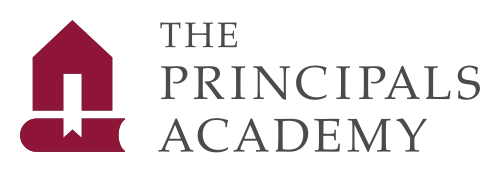Going Forward – Lessons from 2024
This newsletter outreach to principals started when COVID hit in 2020 and so it was called Keeping in Touch in Tough Times. Well, it’s more than four years later and times are undoubtedly still tough. We still need massive personal and professional support, and the Principals Academy has shown it has the insight, integrity and expertise to help principals become the kind of school leaders South Africa desperately needs right now.
Going Forward – is what makes a school relevant and successful. I wrote recently to the principals I coach, ‘One day your photo will be on the wall in the passage because the school chose YOU to take it FORWARD.
This letter is a joint effort by my colleague coaches and my partner principals to share observations on 2024 and ideas for 2025 which you can use as you reflect or as you prepare that end of year staff hour or that first staff session of next year. These perceptions are from practitioners who currently manage schools in the Western Cape or visit and mentor five or six principals per week in their busy offices. Interrogate the points below to take your school forward.
One of the deputies I coach, Monia Lewis, who finished her UCT GSB year on Saturday writes, ‘My key objective as Deputy will be to optimise record-keeping processes and improve classroom management techniques ensuring a more efficient, effective and supportive learning environment for learners and their teachers.’ I love the focus of her goals for the new year.
Another graduate, Sharon Poole, challenges us all by simply saying, ‘I’m looking forward to 2025 with my newfound knowledge and experience.’ Are you looking forward to 2025? Perhaps this time next month!
One principal highlighted an issue we all recognise ‘2024 taught me not to get hooked by staff personal agendas. Stay focused on the goals and do not get distracted by the noise.’
Another principal, Isaac Morkel, has committed his staff to a ‘collaborative, focused, target-driven push for academic and holistic prowess in 2025 through planned actions, diplomatic finesse and a whole lot of elbow grease’. Nothing about getting better is easy.
Coach Gavin Fish noted, ‘Take time to reflect on what went well in the year past and plan to build on it in 2025. Our default position is the Negativity Bias where we tend to remember the unpleasant, our “failures” and frustrations. Find time to celebrate the good and, if you are battling to remember such, ask a trusted colleague or three.’
Our CEO, Keith Richardson, reminds us that health initiatives – especially as a result of COVID – have shown us the potential of working together. What can we improve in our schools if principals work together? I cannot stress this more.
He also makes the point that AI is going to revolutionise education. It provides amazing tools for teachers in any setting. Are we ready for it? Have we interacted with teachers who are using AI to take teaching and learning to new levels? How open and flexible are we, as principals, to exploring AI, to encouraging and supporting teachers who lead the way.
The most common comment from coaches was on the importance of staff collaboration and the power of teamwork. Midge Hilton-Green stressed the continual development (and acknowledgment) of staff, both individually and as a team, in a way that is on-going, monitored and measured. There can be nothing haphazard about the subject-specific, technological and team aspects of readying teachers for today’s educational challenge.
In my experience subjects flourish at a school in direct proportion, not only to the quality of the teachers but, more specifically, to the quality of leadership and accountability of the subject head and the lead collaborators in each of the grades. Subject or literacy or numeracy improvement is an intensive weekly drive to plan, to put in the time and to master and monitor the skills required.
Gregg King, coach and former principal and circuit manager, urges principals to pace themselves so as not to get bogged down in red tape and administration. That pacing is important to invest enough time in building positive staff relationships, in making ‘me’ time for themselves and supporting their staff – teaching and non-teaching – to do the same. It is important for their mental health and longevity in education, he says.
This time last year I wrote a letter entitled ‘Lessons from the Springboks to the Staff Team’. Alan Clarke, author of the PAT 2025 Planning Document, stresses that John Hattie, New Zealand’s most highly respected educationist, confirms that ‘Collective Teacher Efficacy’ is strongly correlated to improved learning outcomes. Use Rassie’s amazing ability to ingrain this concept in the entire Springbok squad as what needs to happen in every grade team, phase team, subject team, portfolio and school management team. I repeat that word ‘team’ on purpose. It’s the basis of collective efficacy and the most necessary step for going forward. And don’t just stick to the Springboks. How about Saturday’s Carling Cup Final where Mogesi FC beat Sundowns? Thanks for a telling point, Alan.
I loved Deloitte Africa CEO Ruwayda Redfeam’s speech at the Sunday Times Top 100 Companies Awards Dinner last week. ‘Tonight is not just about recognition of business excellence and outstanding achievements of companies and individuals – it’s about celebrating and acknowledging the journey that got you here. We recognise that behind every achievement is a story of grit, resilience, and often the courage to fail, but most importantly to keep going when things are tough.’
We all agree, times are tough, but our country needs genuine leadership at every level. You are that leader. The country’s future is in your hands. End your year off on a high and send your staff off to rest, recharge and return with energy and enthusiasm.
Till 2025.
Paul
Coach/Mentor
The Principals Academy Trust
No: 16/24
27 November 2024
